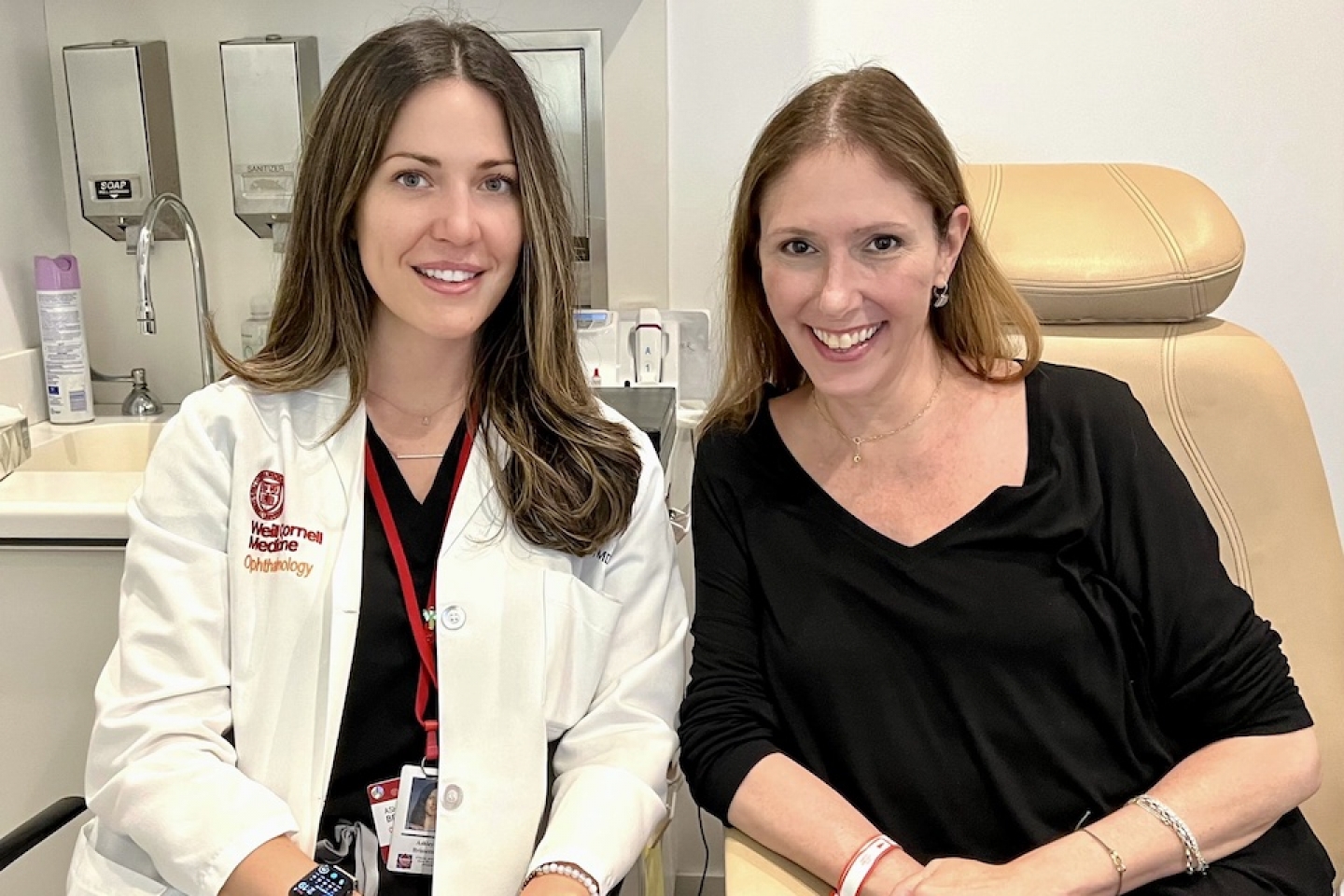
Anne McDermott, a 53-year-old who lives in Ridgefield, Connecticut and hails originally from Pittsburgh, received a new liver at NewYork-Presbyterian Hospital in the fall of 2021. The surgery went extremely well, but transplant patients typically require fairly long hospital stays, and McDermott was no exception.
Shortly after she was discharged, she started to notice that her vision was blurrier than usual. “It kind of crept up on me,” she says. “I actually wasn’t paying attention to my eyesight at that point.”
She proceeded to make an appointment with an ophthalmologist, Dr. Ashley Brissette—an outstanding specialist at Weill Cornell Medicine—expecting to receive a new prescription for eyeglasses. Then, Dr. Brissette broke the news: McDermott’s prescription was fine. Cataracts were the problem, and not just the tiny ones that may appear in late middle age. Hers were so advanced that they would require surgery.
“I had already been through so much,” she says. “I felt deeply embarrassed and discouraged at the mere thought of having yet another procedure.” But for the sake of her eyesight, she took the plunge.
And the results were nothing short of fantastic. Even after the first cataract procdure, the improvement was so dramatic that she cried. She hadn’t realized how poor her eyesight had become.
McDermott had recently bought a painting and found the perfect place to hang it. But even before the cataract was removed from her second eye, she grasped that she hadn’t been seeing colors for months—maybe even years.
“I was on massive doses of steroids in the aftermath of my transplant, and that was probably the cause of my cataracts,” she says, adding, “I had a great rapport with Dr. Brissette, and my recovery couldn’t have gone more smoothly. Best of all, no new glasses!”
After removing each of McDermott’s cataracts in turn, Dr. Brissette inserted corrective intra-ocular lenses in each of her patient’s eyes. Those inner “glasses” have changed her life almost as much as her new liver has. Her liver transplant saved her life, she says, and her cataract surgery changed its quality, enhancing the many pleasures of day-to-day living.
Weill Cornell Medicine’s Department of Ophthalmology offers the latest technologies, including laser surgery for cataracts and other eye disorders. The procedure is quite quick says Dr. Brissette—usually about 25 minutes.
McDermott was well aware of the excellent care on offer at NewYork-Presbyterian, and she was never disappointed on that score.
As a former nurse practitioner and nurse midwife with degrees from Yale University School of Nursing, she is familiar with academic medical systems, including their institutional “culture.” In her opinion, Weill Cornell Medicine’s culture stands out from the rest.
“An institution’s culture affects its outcomes,” she says. “As a patient, I saw all this up close and personal. The dynamic between patients and providers felt warmer and more humane than anywhere else I’ve ever been.
“Here’s an example,” she continued. “During my hospital stay, I was unable to shower, and my hair was all tangled. Then, one of my nurses from the critical care unit got special permission to do my hair. She used conditioner to get the knots out. That was pure humanity and pure kindness. I’ll never forget the difference she made through that one kind act.”
McDermott noted another example of Weill Cornell Medicine’s unique culture: the dynamic exchange of ideas between the doctors on their rounds. That collaborative spirit between attendings and residents was not lost on the nurse who became a patient, as well as a great fan of NewYork-Presbyterian and the amazing people who treat patients and each other as, well, people!
Ever since her cataract surgery, she has brought all of her care under the Weill Cornell Medicine umbrella. “I resigned from the health system where I had been a patient for years,” she said, and she hasn’t looked back once.
Now, all of her doctors and nurses can collaborate and communicate with ease. Now, McDermott knows she is getting the best care in the city. With her high standards, why should she settle for less!?